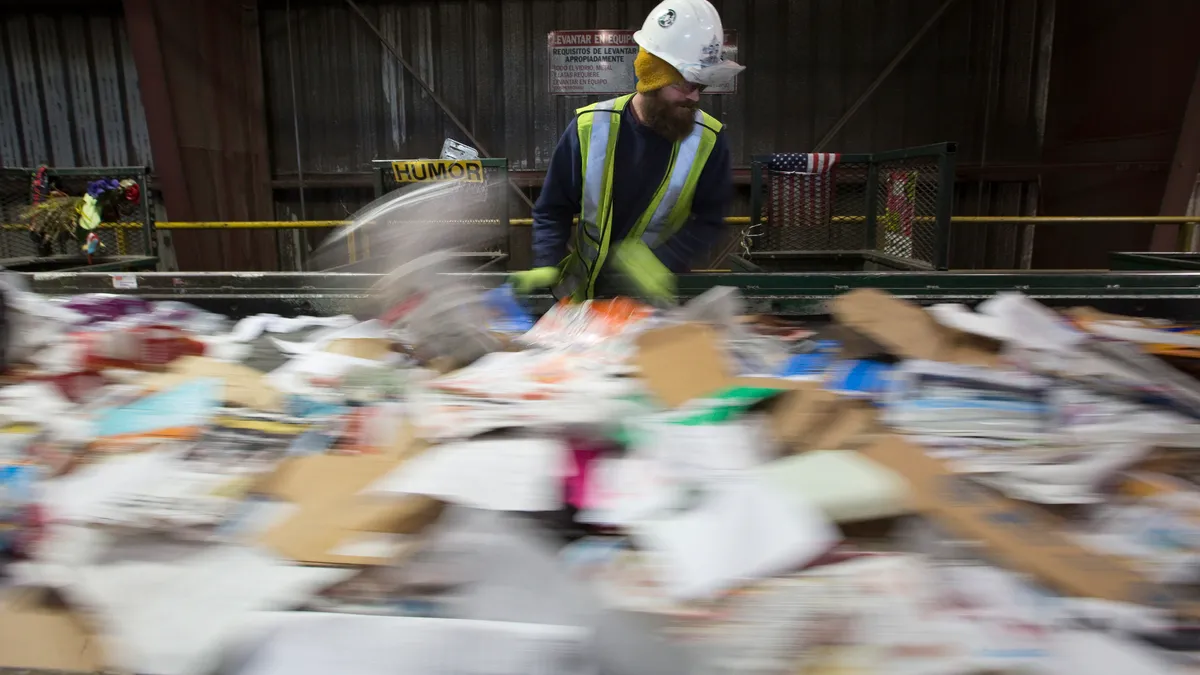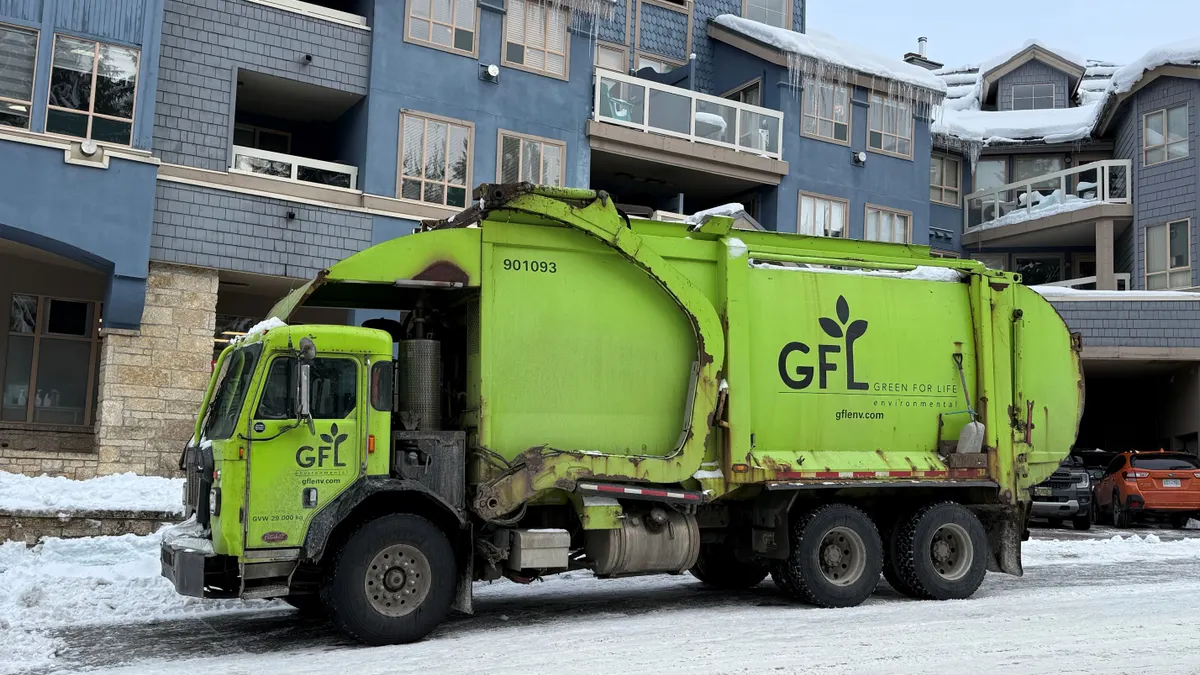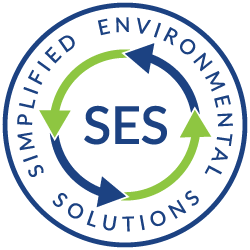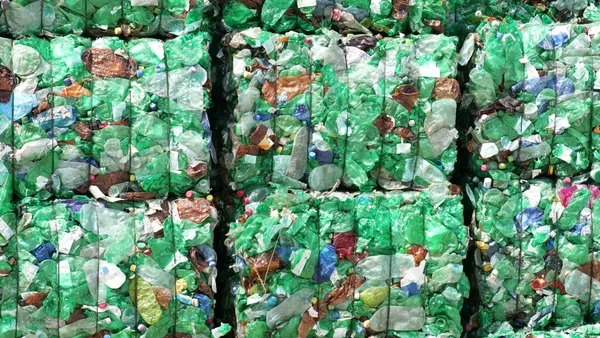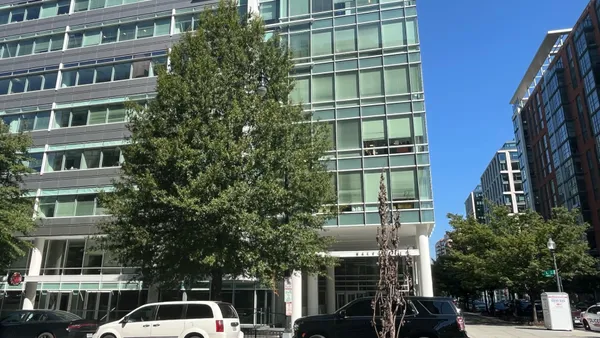Dive Brief:
- Oregon launched its extended producer responsibility program for packaging on Tuesday, but the state will delay enforcement of a provision calling for verification that recycled materials are sent to “responsible end markets.”
- Under the Recycling Mondernization Act, certain recycling facilities must work with the producer responsibility organization to determine whether the recycled materials being processed are sent to end markets that will handle the material in a safe and environmentally sound way. Enforcement on that provision won’t begin until Jan. 1, 2026, the Oregon Department of Environmental Quality said in an email.
- Circular Action Alliance, Oregon’s PRO, said “more time was needed to fully develop a standard” that can accomplish the state’s intended goals. CAA will propose an update later in the month to establish a new national end market verification process, based partly on feedback from more than 250 stakeholders, said spokesperson Sophie Robertson.
Dive Insight:
Oregon is the first U.S. state to roll out its EPR for packaging program, which will charge producers with funding major improvements to recycling systems.
As the first state to implement the program, it will take time to work out certain aspects, including the provision to track and confirm responsible end markets for certain covered recycled materials, both DEQ and CAA have said.
DEQ defines responsible end markets, also known as REMs, as those that receive and turn recyclables into feedstock or raw materials for new products. At the heart of the provision, REMs are meant to be “transparent, compliant, environmentally-sound, and they achieve good yield,” DEQ said in an email. The goal is to deter dumping and other environmental hazards while also protecting worker safety, DEQ has said.
But some stakeholders voiced concerns during the rulemaking process in 2023 that determining REM provisions might be more complicated than that. For instance, the American Forest & Paper Association and Ameripen were among the stakeholders that highlighted potential challenges with auditing supply chain processes and determining which markets qualify as “responsible.” Some materials, such as PET thermoforms, weren’t included on the statewide list of materials accepted for recycling, in part due to disagreements over whether the material had a verified responsible end market.
To get ready for this provision, CAA’s EPR program plan includes a REM verification standard that features certain performance indicators and procedures to carry out when recyclers and other entities are not able to comply.
In the plan, CAA noted it would partner with GreenBlue, an environmental materials management and recycling organization, and use its Recycled Material Standard as the verification standard for the initial rollout of the REM provisions. CAA said it would also plan to integrate “multiple certifications when they are independently available to end markets.”
But Robertson added in an email that CAA has also been working “to design an efficient, transparent, and aligned REM verification process that will meet the RMA's goals,” which could eventually lead to an updated verification plan.
CAA will also call for a “phased-in approach to REMs,” she said, but it was unclear as of press time what those details could look like.
For now, any entities that receive processed recycled material from an Oregon MRF or collection program “must be screened as ‘responsible’ prior to receiving recycled material.” That’s done through a self-attestation form those entities are required to submit to confirm their responsible status for an array of materials. Those parties can include brokers, secondary processors, landfills or other disposal entities.
Though DEQ does not plan to enforce the REM provision until January, Robertson said applicable end market entities should still complete a self-attestation form if they haven’t already. MRF operators could also provide paperwork, if necessary, to show the state that there is a lack of sufficient end markets for certain materials, she said.



